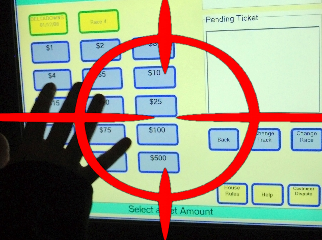 There’s a common misconception in betting circles that the word “lock” is tantamount to free money. A lot of sports betting systems throw this word around in an attempt to get some traction and recognition. That’s all well and good in an ideal world where all the teams your fading have the talent level of the Jacksonville Jaguars.
There’s a common misconception in betting circles that the word “lock” is tantamount to free money. A lot of sports betting systems throw this word around in an attempt to get some traction and recognition. That’s all well and good in an ideal world where all the teams your fading have the talent level of the Jacksonville Jaguars.
But such things don’t exist in real world sports betting and the word “lock” is as much a myth as it is a reminder that sports betting isn’t as easy as it looks.
People who spend hours upon hours promoting their betting systems are usually the ones most guilty of throwing this word around. But here’s a nugget of truth that nobody can argue against: sports betting systems aren’t always locks.
In the same way that there’s no real truth to science other than the universe is completely unsolvable, there’s no full-proof sports betting system that will continuously churn out winning results. If there ever was one, the guy who invented it should at least be a billionaire by now. Besides, a lot of the sports betting systems you see or hear about negate the real world aspects of sports betting, often hiding behind the skirt of probabilities and games of chance than it does to skill-based wagering that’s essential in becoming a winning sports bettor.
The methodologies behind these systems might be different, but the catch is almost always the same. “This is a can’t-miss system that’ll turn you a sizable profit in the next seven days,” these systems will shout to the high heavens. But the important question is: what kind of system does it run? Is it based on singular trends that are lumped together to favor a certain team? Does the system involve a supercomputer that spits out a metric boatload of statistics and probabilities?
In the case of the former, you can immediately tell that the data that’s being presented is slanted and geared towards convincing you to take one side. But remember, these trends are based on past information and not necessarily indicative of what’s going to
